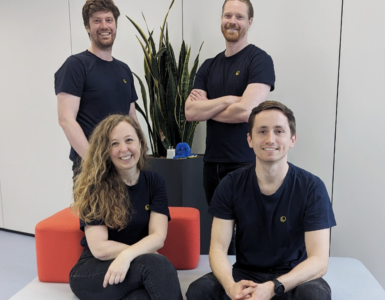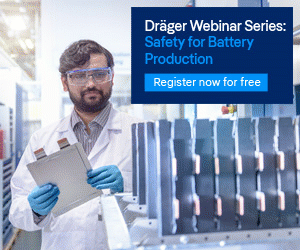RoSiLIB, German project to develop high energy silicon anodes for lithium-ion batteries. With the new project “RoSiLIB”, the Fraunhofer Institute for Manufacturing Technology and Advanced Materials IFAM in Dresden is making a decisive contribution towards a CO2-neutral energy supply in mobility.
To this end, new high-energy silicon anodes for lithium-ion batteries are being developed together with partners from the Institute of Ion Beam Physics and Materials Research at the Helmholtz-Zentrum Dresden Rossendorf e. V., E-Lyte Innovations GmbH, NANOVAL GmbH & Co. KG, VON ARDENNE GmbH and Custom Cells Itzehoe GmbH.
The complete switch to electromobility demanded and promoted by the German government will only be possible with solutions that promote the switch from fossil to electrochemical energy sources. Improving lithium-ion batteries in terms of cost, raw material and energy efficiency is an important step in this process.
In order to meet the necessary improvements in battery cells for electromobility, the targeted innovative silicon anode is being developed along the entire value chain within the project.
🔥 What about we co-host a webinar? Let's educate, captivate, and convert the battery economy!
Batteries News is the global go-to online magazine for the battery industry, we can help you host impactful webinars that become a global reference on your topic and are an evergreen source of leads. Click here to request more details
Crucial to this is the further development of a new cost-effective manufacturing route for nanoporous silicon microparticles. These are to be used to build large-format high-energy battery cells, which cannot be produced with the previous anode materials with high energy density.

The project addresses the hitherto unsolved challenges of large-format cells at several levels: solutions are being developed for both the volume jump of the active material and the outgassing of the electrolyte.
Within “RoSiLIB”, the researchers at Fraunhofer IFAM in Dresden are mainly concerned with the further development of nanoporous silicon and are further adapting the internal structure of the particles to the requirements of the battery.
For this purpose, the formation of the structure during powder atomization of silicon alloys must be better understood. In this subproject, the results of atomization experiments and simulation calculations are combined for this purpose.
At the same time, the chemical processing of the powders will be further developed and scaled up so that up to 500 g of nanoporous silicon can be produced per day.
Within the project, Fraunhofer IFAM Dresden can make impressive use of its extensive expertise in the areas of rapid solidification, chemical synthesis, and the development of high-performance batteries, and build up further know-how for future topics.
New impetus for electromobility: Development of more efficient lithium-ion batteries, March 31, 2021







